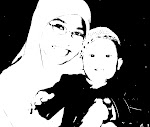
1. Doa wanita itu lebih makbul daripada lelaki kerana sifat penyayang yang lebih kuat daripada lelaki. Ketika ditanya kepada Rasulullah SAW akan hal tersebut, jawab baginda , " Ibu lebih penyayang daripada bapa dan doa orang yang penyayang tidak akan sia-sia."
2. Wanita yang solehah (baik) itu lebih baik daripada 1000 lelaki yang soleh.
3. Barangsiapa yang menggembirakan anak perempuannya, darjatnya seumpama orang yang sentiasa menangis kerana takutkan Allah .Dan orang yang takutkan Allah SWT akan diharamkan api neraka ke atas tubuhnya.
4. Barangsiapa membawa hadiah (barang makanan dari pasar ke rumah lalu diberikan kepada keluarganya) maka pahalanya seperti melakukan amalan bersedekah.Hendaklah mendahulukan anak perempuan daripada anak lelaki. Maka barang siapa yang menyukakan anak perempuan seolah-olah dia memerdekakan anak Nabi Ismail.
5. Syurga itu di bawah telapak kaki ibu.
6. Apabila memanggil akan dirimu dua orang ibu bapamu, maka jawablah panggilan ibumu terlebih dahulu.
7. Daripada Aisyah r.a." Barangsiapa yang diuji dengan sesuatu daripada anak-anak perempuannya lalu dia berbuat baik kepada mereka, maka mereka akan menjadi penghalang baginya daripada api neraka.
8. Wanita yang taat berkhidmat kepada suaminya akan tertutuplah pintu-pintu neraka dan terbuka pintu-pintu syurga. Masuklah dari mana-mana pun pintu yang dia kehendaki dengan tidak dihisab.
9. Wanita yang taat pada suaminya, maka semua ikan-ikan di laut, burung diudara, malaikat di langit, matahari dan bulan semua beristighfar baginya selama mana dia taat kepada suaminya serta menjaga solat dan puasanya.
10. Aisyah r.a berkata, "Aku bertanya kepada Rasulullah, siapakah yang lebih besar haknya terhadap wanita?" Jawab Rasulullah SAW "Suaminya." " Siapa pula berhak terhadap lelaki?" Jawab Rasulullah SAW, "Ibunya."
11. Perempuan apabila sembahyang lima waktu, puasa di bulan Ramadhan,memelihara kehormatannya serta kepada suaminya, masuklah dia dari pintu syurga mana sahaja yang dikehendaki.
12. Tiap perempuan yang menolong suaminya dalam urusan agama, maka Allah SWT memasukkan dia ke dalam syurga terlebih dahulu daripada suaminya (10,000tahun).
13. Apabila seseorang perempuan mengandung janin dalam rahimnya,maka beristighfarlah para malaikat untuknya. Allah SWT mencatatkan baginya setiap hari dengan 1,000 kebajikan dan menghapuskan darinya 1,000 kejahatan.
14. Apabila seseorang perempuan mulai sakit hendak bersalin, maka Allah SWT mencatatkan baginya pahala orang yang berjihad pada jalan Allah.
15. Apabila seseorang perempuan melahirkan anak, keluarlah dia dari dosa-dosa seperti keadaan ibunya melahirkannya.
16. Apabila telah lahir anak lalu disusui, maka bagi ibu itu setiap satu tegukan daripada susunya diberi satu kebajikan.
17. Apabila semalaman seorang ibu tidak tidur dan memelihara anaknya yang sakit, maka Allah SWT memberinya pahala seperti memerdekakan 70 orang hamba dengan ikhlas untuk membela agama Allah SWT.
Dicatat oleh Imam Al-Ghazalli

my sister




1 comment:
Husnaida Abd manan ke ni?
Post a Comment